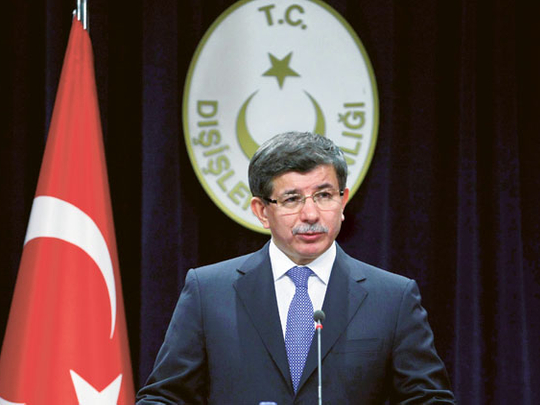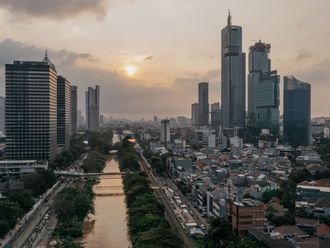
Damascus: Two years ago, Turkish Prime Minister Recep Tayyip Erdogan addressed a Syrian-Turkish business forum, telling Syrian businessmen: "Work with us, and hand-in-hand, we can extract milk, even from the male goat."
Everything was possible; he seemed to be saying, drawing examples from Turkey's economic success story. Attendees applauded heavily, seeing the start of a new and seemingly very rewarding relationship between the two countries, politically, culturally, and economically.
The long years of conflict left over from the Ottoman era and the Cold War, were finally becoming history as Turkey turned a new page with its neighbours after Erdogan came to power in 2003.
The Turkey of today was projected as Syria's largest trade partner, with bilateral trade standing at $2.2 billion (Dh8 billion) in 2010. Erdogan had promised his Syrian hosts that hand-in-hand they would raise it to $5 billion.
Nobody imagined that less than three years later, all of that potential, and rosy talk, would vanish into thin air when Syrian-Turkish relations hit rock bottom.
Daily accusations
The writing for Turkish sanctions on Syria has been on the wall for several months.
A wide chorus of Turkish officials, headed by the Prime Minister himself, fired daily accusations against the Syrian government, often targeting Erdogan's former friend, President Bashar Al Assad.
Yesterday, Turkey suspended all financial credit dealing with the Syrian government, freezing its assets in Turkey, blocked weapons delivery to Syria, and ended all dealings with the Central Bank of Syria.
The sanctions, which would go into effect ‘immediately,' were announced by Turkish Foreign Minister Ahmet Davutoglu.
"Until a legitimate government which is at peace with its people is in charge in Syria, the mechanism of the High Level of Strategic Cooperation has been suspended," Davutoglu said.
He added that the Syrian government had reached, ‘the end of the road.'
This came only days after the Arab League imposed harsh sanctions on Syria.
Piling pressure
Qatar’s state-owned airline, Qatar Airways, said it was stopping its flights to and from Syria starting yesterday as part of a package of sanctions imposed by the Arab League on Damascus over its violent clampdown on its opposition.
The airline said in a statement released in Damascus that the suspension would be in effect until November 28, 2012.
As of next week, Emirates and Etihad Airways will also stop flying to Damascus, and Turkish Airlines is likely to follow.
Turks first on list of investors
According to the Annual Report of Investment Climate in Arab Countries, Syria ranked sixth on the list of regional investment targets, attracting 9.9 per cent of the total investment flowing into Arab countries.
Over a ten-year period, 222 projects had been established in Syria, by 35 countries. The Turks ranked first on the list of investors in Syria, with 32 projects, 19 of them in industry. During the period January-July 2011, Syrian exports to Turkey amounted to $418.2 million (Dh1.54 billion), which was a 7 per cent drop when compared to 2010, when the number stood at a solid $449.6 million.
Turkish exports
Turkish exports, also for January-July 2011, had nevertheless risen by 1.4 per cent, from $992.1 million in 2010 to $1 billion in 2011. Thanks to the Syrian-Turkish Free Trade Agreement, signed in 2004, bilateral trade between the two countries rose by approximately 30 per cent annually, from $1.7 billion in 2009 to $2.2 billion in 2010.
In 2009, Syria and Turkey signed 47 cooperation agreements, and lifted visa requirements between them, in what Erdogan described as a “regional Schengen”. Now he has signed similar agreements with other Arab countries like Lebanon, Jordan and Tunisia.
To further delve into Syrian tourism, Turkey’s Dedeman Hotel recently bought Syria’s first five-star hotel, Le Meridian. During the first six-months of 2010, the number of Syrian tourists to Turkey jumped 108 per cent. According to the Syrian Ministry of Tourism, 8.5 million tourists come to Syria per year, 20 per cent of whom are Turkish. Syrians, however, account for only 3.1 per cent of Turkey’s tourists. In 2002, only 126,000 Syrians travelled to Turkey for tourism. By 2010, that number had risen to 899,000.












